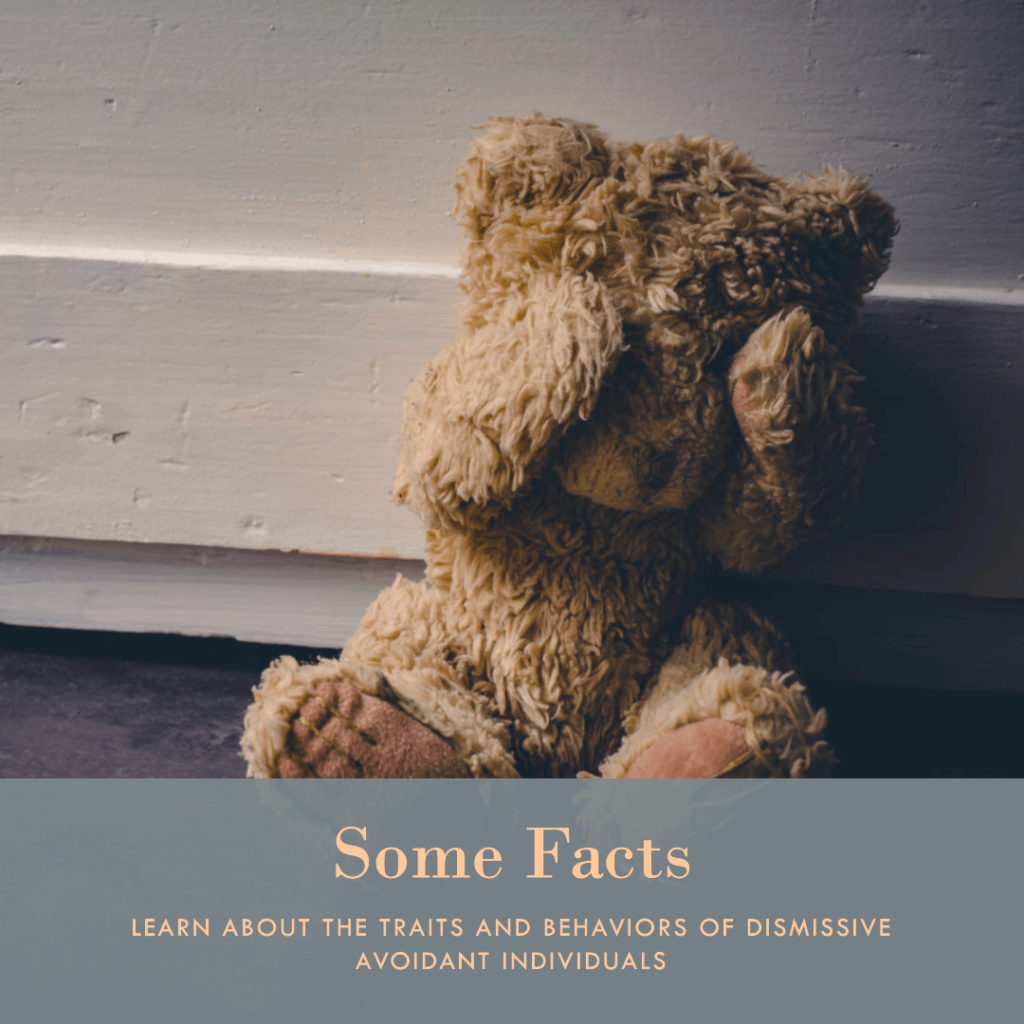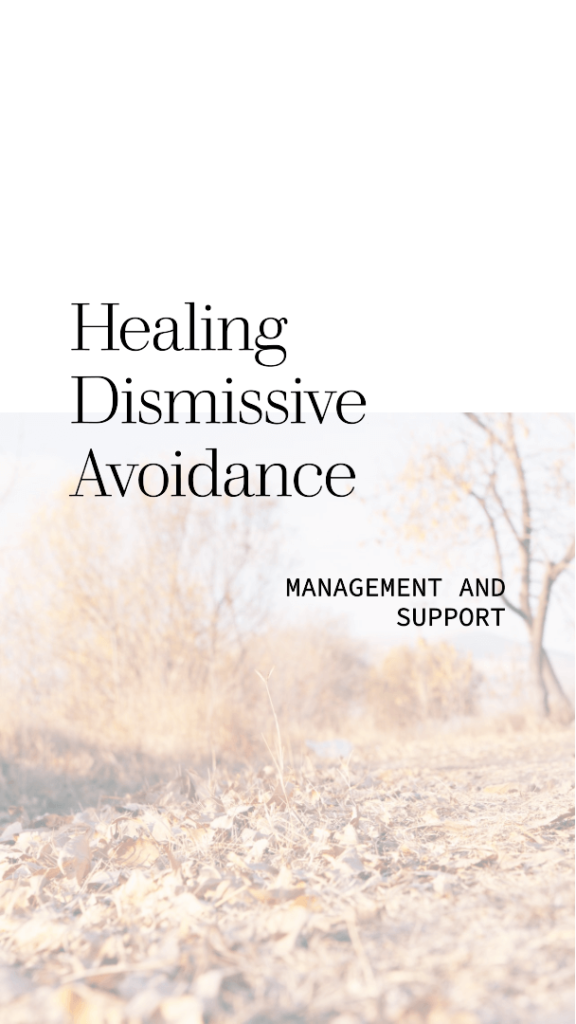Do you find it challenging to connect with your partner emotionally? Do they often appear distant and independent, making you wonder if they truly care? It’s possible that your partner exhibits traits of the dismissive avoidant attachment style. In this blog post, we’ll explore the dismissive avoidant attachment style, its characteristics, origins in childhood, and its impact on adult relationships. We’ll also discuss strategies for managing dismissive avoidant patterns and fostering healthier connections.

What is Dismissive Avoidant Attachment?
Attachment theory, suggests that our early relationships with caregivers shape our attachment styles, influencing our behavior in adult relationships. The dismissive avoidant attachment style is one of these attachment patterns.
Individuals with this attachment style tend to downplay the importance of emotional intimacy and independence. They often value self-reliance and self-sufficiency, preferring not to rely on others for emotional support. In a romantic relationship, this attachment style can manifest as emotional distance, a reluctance to express vulnerability, and difficulty with intimacy.
Often times, these individuals grew up with emotional neglect, or with caregivers who are unpredictable and/or inconsistent with emotional response. They never learned proper emotional attunement, so they tend to be withdrawn or distant and eventually emotionally unavailable in relationships.
This attachment style gets the most criticism, primarily because of how emotionally distant they tend to be which could be triggering for individuals with other insecure attachments. Which also makes them the most misunderstood attachment because of their inability to be vulnerable and express their emotional needs, and they keep their emotions at a distance coming off as cold or uninterested.
Characteristics of Dismissive Avoidant Attachment

Understanding the characteristics of the dismissive avoidant attachment style is key to identifying it in yourself or your partner:
- Emotional Independence: They are self-sufficient and may struggle to depend on others emotionally.
- Difficulty with Intimacy: They may find it challenging to open up and share their emotions, even with a romantic partner.
- Fear of Vulnerability: They often fear being vulnerable, as they associate it with weakness.
- Preference for Solitude: They value their alone time and may withdraw when their partner seeks emotional closeness.
- Minimizing the Importance of Relationships: They might downplay the significance of their relationships, making them seem less affected by emotional conflicts.
The Origin
Many dismissive avoidant attachment traits can be traced back to early childhood experiences. Caregivers who were emotionally distant, unresponsive, or inconsistent in their attention may have led to the development of this attachment style. In response to perceived emotional unavailability, children may have learned to self-soothe and suppress their emotional needs.
Impact on Adult Relationships
Understanding dismissive avoidant attachment is important in the context of adult relationships. If you or your partner have this attachment style, it can create challenges, such as:

- Communication Difficulties: Misunderstandings can arise when a dismissive avoidant struggles to express their feelings or validate their partner’s emotions.
- Emotional Distance: Partners may feel disconnected or unimportant due to the avoidant’s emotional reserve.
- Conflict Resolution Issues: Dismissive avoidants may avoid conflict, leading to unresolved issues within the relationship.

Managing Dismissive Avoidant Attachment
It’s possible to manage dismissive avoidant attachment patterns and transition to a more secure attachment style. Here are some strategies to consider:
- Self-Awareness: Recognize your attachment style and its impact on your relationships.
- Therapy: Seek the help of a therapist who specializes in attachment issues to explore the root causes of your attachment style.
- Communication Skills: Work on improving communication and express your needs and emotions more openly.
- Embrace Vulnerability: Understand that vulnerability is not a weakness but an essential component of intimacy.
- Gradual Change: Change takes time. Be patient with yourself or your partner as you both work on developing healthier attachment patterns.
Supporting a Dismissive Avoidant Partner
If you’re in a relationship with a dismissive avoidant, here are some tips for providing support:
- Empathy: Understand their attachment style and be empathetic to their fear of vulnerability.
- Communication: Encourage open and non-judgmental communication to help them feel safe expressing their emotions.
- Respect Boundaries: Recognize their need for alone time and independence, while also establishing boundaries that work for both of you.
- Therapeutic Support: Suggest therapy or counseling to address attachment-related issues together.
Conclusion
Understanding and managing the dismissive avoidant attachment style is essential for nurturing healthier, more fulfilling relationships. By recognizing the origins and characteristics of this attachment style and implementing strategies for change, individuals and couples can foster greater emotional intimacy and satisfaction in their relationships. It’s a journey towards self-discovery, personal growth, and the building of deeper, more meaningful connections.

I want to extend a heartfelt thank you for taking the time to read this blog post. I hope it was informative, insightful, and most importantly, useful to you. Mental health is an important topic that affects us all, and I’m grateful for the opportunity to share my thoughts with you.
If you have any thoughts or comments, I encourage you to leave them in the comment box below. Your feedback is essential to me and helps me create content that is tailored to your needs.
If you found this post helpful, please subscribe to my newsletter for more resources and updates on mental health. You can also reach out to me via email if you have any questions or just want to chat. Remember, taking care of your mental health is important, and you are not alone.
Thank you so much,I really can relate to this